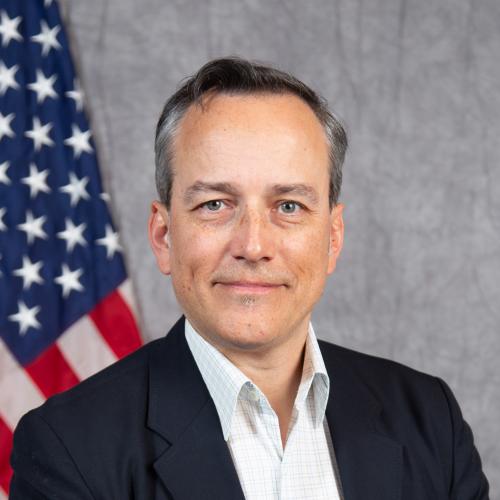Bryan Mercier has been named the next director of the Bureau of Indian Affairs (BIA) by Assistant Secretary for Indian Affairs Bryan Newland. Mercier, a tribal citizen of the Confederated Tribes of the Grand Ronde Community of Oregon, will be acting BIA director effective September 8, 2024, and will be formally appointed to the position when current BIA Director Darryl LaCounte retires later this year.

Mercier has served as the director of the BIA Northwest Regional Office since 2018.
“Bryan has demonstrated exceptional leadership ability, and I’m excited for what he brings to this role,” Newland said. “We held a comprehensive recruitment and selection process to identify the best candidate, and Bryan stood out for his vision of the future of BIA and skills to achieve that vision.”
Mercier has spent 20 years working in public service. His federal career started with the U.S. Forest Service, followed by a few years as a program manager at the Department of the Treasury’s Community Development Financial Institution Fund. Prior to the BIA, Bryan served as the Executive Manager of Fish and Wildlife for the Bonneville Power Administration’s Environment, Fish and Wildlife Program, which is the largest environmental mitigation program in the United States.
“I’ve had the privilege of serving in four federal agencies, Energy, Treasury, Agriculture and Interior, each with unique missions. None have a mission as important and fulfilling as BIA’s,” said Mercier. “I’m truly honored to be selected as the bureau’s next director and look forward to building on Darryl LaCounte’s sound leadership to support Tribal sovereignty, strengthen Indian self-determination, and continue to improve our services by making the bureau an employer of choice for Native people.”
Mercier holds an undergraduate degree in business administration from the University of Oregon, a graduate certificate in economics from the Universitaet Freiburg in Germany, and a graduate degree in human rights and international law from the Universidad Carlos III de Madrid in Spain.
“Darryl taught me a lot about what it means to serve, in a way that respects those we serve,” Newland said. “I am incredibly grateful for the work we’ve done together and for the work he has accomplished for Indian people throughout his career.”
LaCounte, a member of the Turtle Mountain Band of Chippewa Indians located in North Dakota, is retiring after 36 years of distinguished service to Indian Country. He was appointed as BIA director in 2019.
More Stories Like This
Native News Weekly (August 25, 2024): D.C. BriefsUS Presidents in Their Own Words Concerning American Indians
Federal Judge Orders ICE to Halt Use of Pepper Spray, Arrests of Peaceful Protesters in Twin Cities
Tunica-Biloxi Cultural Leader John D. Barbry Walks On
Next on Native Bidaské: Federal ICE Activity in Minneapolis: Ruth Buffalo’s Perspective
Help us defend tribal sovereignty.
At Native News Online, our mission is rooted in telling the stories that strengthen sovereignty and uplift Indigenous voices — not just at year’s end, but every single day.
Because of your generosity last year, we were able to keep our reporters on the ground in tribal communities, at national gatherings and in the halls of Congress — covering the issues that matter most to Indian Country: sovereignty, culture, education, health and economic opportunity.
That support sustained us through a tough year in 2025. Now, as we look to the year ahead, we need your help right now to ensure warrior journalism remains strong — reporting that defends tribal sovereignty, amplifies Native truth, and holds power accountable.
 The stakes couldn't be higher. Your support keeps Native voices heard, Native stories told and Native sovereignty defended.
The stakes couldn't be higher. Your support keeps Native voices heard, Native stories told and Native sovereignty defended.
Stand with Warrior Journalism today.
Levi Rickert (Potawatomi), Editor & Publisher


